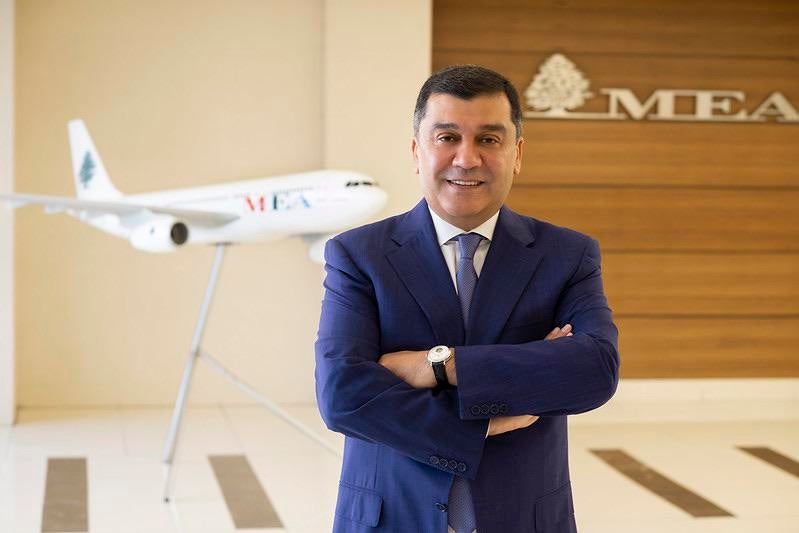Middle East Airlines (MEA) is a longstanding traditional carrier in the Middle East region. However, the carrier has been faced with many challenges since it was founded on 31st May 1945. Despite adversity, the airline managed to produce 18 years of profit before the COVID impact. I managed to meet up with MEA's Chairman and Director General Mohamad Elhout at the IATA AGM. He shared with us the latest updates from MEA.
Africa Expansion
MEA is the launch customer of the Airbus A321XLR. They intend to target getting more routes to Africa when the aircraft enters service as a SkyTeam alliance member in 2024.
“We have many thin routes which are commercially not viable to operate with widebody aircraft, especially to Africa.”
MEA Chairman and DG Mohamad Elhout
I was asking the chairman if he could discuss some of the planned routes to Africa, fortunately Elhout was very informative on this subject. “We are talking about new destinations like Kinshasa, Monrovia, Brazzaville, Freetown, Conakry, Luanda and Librevelle. So we are looking for new markets as well as increasing frequencies on existing routes to Lagos, Abidjan and Accra to daily services,” he said.
MEA will take delivery of three A321XLRs in 2024 and one in 2025.
Elhout said MEA has been unable to fly to these destinations because the markets were so small and the right type of aircraft reaching Africa was not available. “Most of our Africa business is point-to-point,” Elhout said. “However, when we can do daily flights on some routes, then we can attract additional passengers with our sixth freedom rights via our Hub Beirut.” Currently less than five percent of MEA´s passengers are changing aircraft in Beirut.
Elhout describes MEA as a point-to-point carrier. “That’s why our product is more luxurious,” the Chairman said. “On our Airbus A321neo we have only 160 seats. On the A321XLR it will be less than 150 seats.”
Future Fleet Plan
Elhout said the airline’s future A321neo fleet will comprise of 11 A321neos and four A321XLRs. A planned order for four Airbus A330neos has unfortunately been delayed until 2026. “Our current four A330-200s operate only 50%, compared to pre-COVID times.”
Whether MEA keeps its A320 fleet will depend on the economic situation in Lebanon. If that improves then several A320s can remain, the CEO indicated.
Our plan was to have a fleet of 20 aircraft—16 A321neo/XLRs and the A330neos.
MEA Chairman and DG Mohamad Elhout
“Now we are reviewing these plans. We sold one A330-200 and plan to sell another one and to sell five A320s. Our future fleet will be between 15 and 20 aircraft.”
Regarding MEA’s network, plans to operate again to North and South America, like it did in the past, are not on the agenda anymore. “With our codeshare agreements, we can reach, for example, 30 points in the US,” Elhout said.
The Chairman said that the Hub Beirut is benefiting from the Skyteam alliance membership. “But we also have code share agreements outside the alliance, like with Air Canada, Turkish Airlines and many others,” he said.
MEA has been hurt by the COVID-19 pandemic, like most airlines worldwide. “But we did not receive any support from the government, because the government has its own financial problems,” Elhout said.
MEA transported 3.3 million passengers before the pandemic. In 2020, the airline served only 1 million passengers. “I’m sure we will get through this difficult time. MEA and Lebanon have been through so many crises,” Elhout said. “And we made a profit for 18 years before the COVID impact.“


